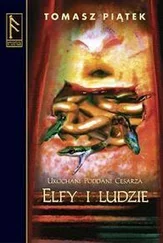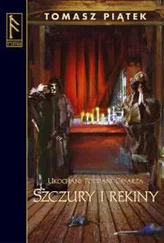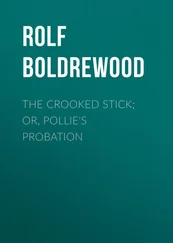He was lying in the morgue when Alice and I arrived from High Point at five in the morning. My mother was about to sign the consent to the autopsy to confirm the obvious, postoperative cardiac arrest, when I ripped the form from her hands and tore it to shreds. He’s dead, he’s fucking dead. Why do you want to cut him up again? My wife and mother and sister, for once, were silent in the face of my ferocity. The night before he was buried, I wrote him a long letter, recording every minute of every day of that week in Florida. I’m sure most of it happened just as I remembered. I slipped it in the pocket of his jacket before the undertaker closed the coffin lid. When I think of him now, he’s never old, feeble, broken. He’s that magnificent animal he was when I was a boy, the man I’ll never be, able to swat a baseball a hundred, thousand, million feet, then spit in his hands and do it again, never breaking a sweat.
“Hi. You remember me?”
He startles me, pulling me from my sentimental reverie.
He looks vaguely familiar. Ordinary. Could be a dozen different guys.
“I’m Harold. We met right before Thanksgiving.”
“Sure…sure. Hey, how you doing?” I say, determined not to be my usual rude self.
“You’re Andy, right?”
“Right.”
“Can I buy you a beer?”
“That’s great, but I really have to go. Someone’s waiting up for me,” I say.
“Your boyfriend?” he asks, his face sagging with disappointment.
“Believe it or not, my mother. I still have a curfew.” I laugh, a too-subtle joke at the expense of a man who’s way too old to be referring to anyone as a boyfriend.
“Next time, then,” he says, obviously cheered by my revelation.
“Next time. It’ll be on me.”
Only once I’m in the car do I realize he was wearing a White Sox jersey. It comes back to me. He was the guy in the Tar Heels hoodie who gave me a chaste kiss last November. What a doofus, I think, smiling. Wonder what he’d think about my encounter with the Great DiMaggio? I’ll have to remember to tell him if I ever see him again.
It sounds beautiful, the way the oncologist describes it. A warm, pulsing, living thing. Organic. Almost musical. If I were an artist, I’d draw it on a field of blue. The lymph system. Thin, pliant tubes, the body’s interstate system, a highway conveying precious lymph-colorless, watery-from spleen to tissue, from farm to market. Think of your nodes as pit stops along the way, bustling with activity, generating cells, an arsenal for the war against infection.
My mind wanders. Why haven’t I ever seen lymph? Cut your finger, you get blood. What happens to lymph when that same paring knife severs a lymph vessel? Where does it go?
Blood also has a verb. Bleed.
Lymph is only a noun. No one ever asks if you’re lymphing.
I’ve never heard of anyone lymphing to death.
It’s a mystery, this lymph. To you, to me, to my mother. But not to the trained eye of the pathologist peering into the microscope, classifying the node cells harvested in the biopsy into a familiar pattern.
The lymph node shows a diffuse lymphocytic infiltrate with occasional residual nonneoplastic germinal centers. The lymphocyctic infiltrate is composed of small cells with scant cytoplasm and irregular, cleaved nuclei (hematoxylin-eosin 40x, x 400 and Wright-Geimsa x 1000).
Wow. Dig that crazy medical lingo, Maynard G. Krebs. Sounds cool to me.
But not to the oncologist reading the report. Not from the look on her face, the slight knotting of her eyebrows.
Lymphoma, she says. Pretty word, I think, meant to be modified by adjectives like languorous or lazy, nice phonetic matches, synonyms of indolent. Indolent lymphoma. All we need to do is Watch and Wait. Odds are better of being killed in a car wreck or a terrorist attack than succumbing to your mutant cells. Right?
Sorry, the oncologist says, the cell pattern indicates adult lymphoblastic lymphoma.
I don’t think I like what all those syllables imply.
An aggressive lymphoma, she explains.
Uh-oh. Aggressive. Rapid action. Carnivorous cells attacking poor, defenseless tissue with their sharp little teeth. Snip, bite, chew, spit. How much have they already eaten? What’s left?
The oncologist asks the receptionist to bring in coffee. There’s Danish left from the morning staff meeting. Please, help yourself. We’re having a tea party, the oncologist, my mother, and me. The doctor slips her stockinged feet out of her pumps. It’s all so cozy in here.
Staging. That’s the next step, she says. Determine the spread. Let’s start with some bloods, draw a little bone marrow, order a CT scan to get a peek inside the body. Now, depending on the results, we may have to consider a laparotomy to…
My mother twitches, a reflex. She must have misheard. She thinks the doctor said lobotomy. No, I assure her. Or maybe I misheard.
…that’s actually a surgical procedure. We make an incision in the belly so we can get to the internal organs. We take little snips to view under the microscope. Not likely we’ll have to go that far. The bloods and marrow hopefully will be sufficient and it won’t be necessary.
The early reviews come in. It’s necessary.
So we pack a little bag, just enough for a night or two, maybe three, and I whisk her away to the hospital.
Should I call my sister? She knows nothing yet. What if my mother dies on the table? What if she never wakes up from the anesthesia? Regina will never forgive me for denying her the opportunity to participate in the death watch, to share the ritual.
But wait a minute. It’s just a test. Just a little exploration, just harvesting a few clippings for the laboratory. My mother will be home in a few days, her biggest worry being the new tinkle in her car engine and whether she remembered to turn off the sprinkler.
But she’s got it.
That much we do know.
Non-Hodgkin’s lymphoma.
It’s just a question of how far it’s gone.
And now we know it’s gone far enough that they need to slice open her belly to determine the spread.
My sister has a right to know.
No, my mother says, no need for her to worry yet. Let’s not give it to her in dribs and drabs. I’ll tell her when I know everything there is to know.
Besides, I think, my sister would never appreciate the beauty of the lymph system. Its silent mysteries are beyond her comprehension. She’s too literal minded. She’s a real estate broker. Only hard facts are meaningful. Mortgage lending rates. Tax assessments. Comparables. There’s plenty of time in the days ahead to reduce my mother’s diagnosis to tangibles-treatments, side effects, diet, support groups-that Regina can grasp with her fist, bite down on, snap in two.
My mother absentmindedly scratches her freshly shaved belly. I tell her I’ll be back in the morning, before they take her downstairs. I kiss her good night. Just a peck on the cheek. Nothing melodramatic. After all, it’s just a test.
She scores four out of a possible four.
Great! That means she’s won!
Sorry, it means she lost.
Stage IV.
The cancer has spread beyond the lymph system. Multiple organs are involved. An aggressive treatment regimen is recommended. Starting immediately. Yes, yes, I say before my mother can speak, answering for her, not allowing her any say in the matter, adamantly refusing to concede the possibility of a world without her.
Certain things are taken for granted; some basic assumptions go unquestioned. The sun will rise in the morning and set at night. The seasons will change. A year will pass and we’ll all be older. My mother will be there, ready to catch me if I fall and lead the charge whenever I’m challenged.
Читать дальше












